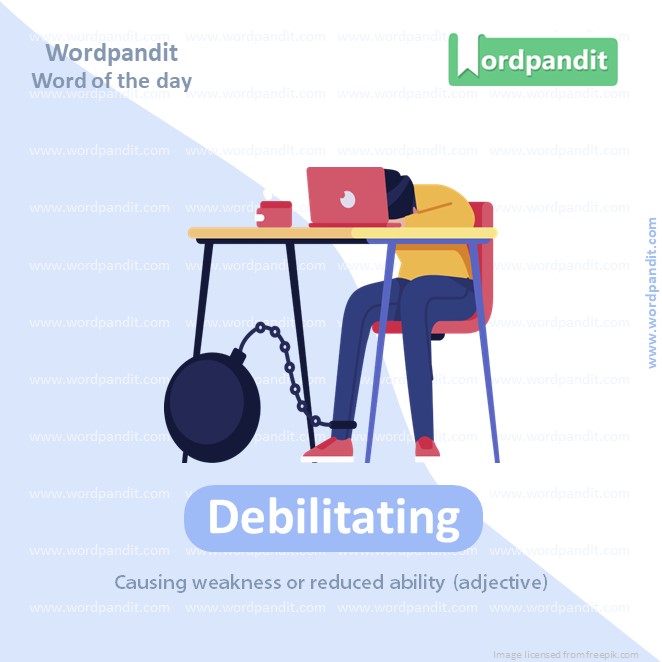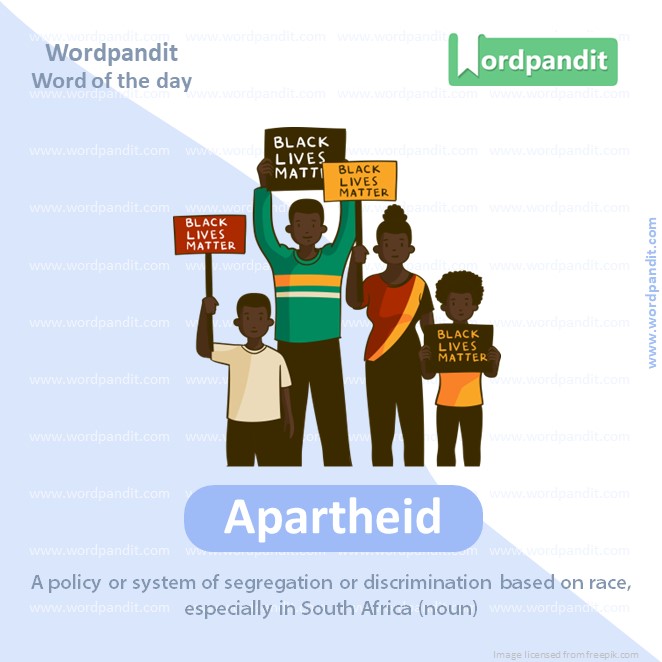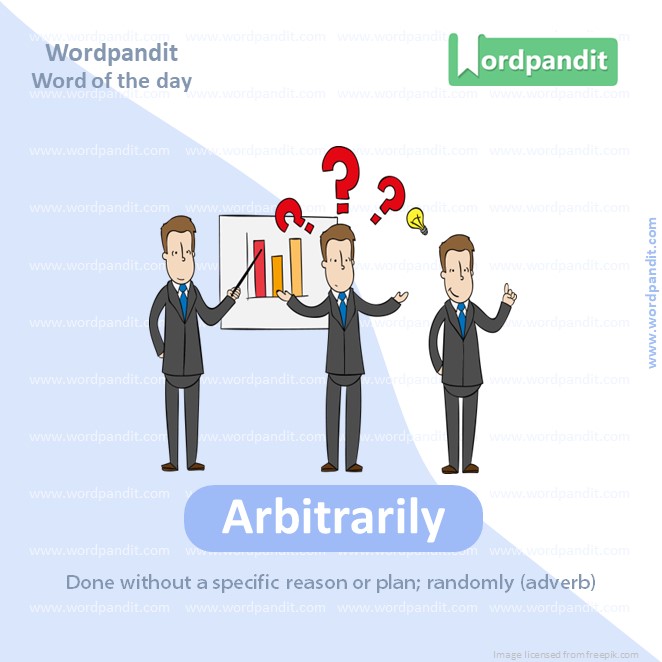Daily Vocabulary Words: List of Daily Used Words in Leading International Newspapers
Hi there. Welcome to this special section @ Wordpandit.
Our endeavour here is very simple: to highlight important daily vocabulary words, which you would come across in leading newspapers in the country. We have included the following newspapers in our selection:
• The New York Times
• The Washington Post
• Scientific American
• BBC
• The Guardian
• Psychology Today
• Wall Street Journal
• The Economist
We are putting in extensive work for developing your vocabulary. All you have got to do is be regular with this section and check out this post on a daily basis. This is your repository of words that are commonly used and essentially, we are posting a list of daily used words. Hence, this has significant practical application as it teaches you words that are used commonly in leading publications mentioned above.
Visit the website daily to learn words from leading international newspapers.

WORD-1: Erected
CONTEXT: Soon information appeared on social media that the wall that Israel had erected around the Gaza Strip to keep its 2.3 million people permanently imprisoned had been breached.
SOURCE: Al Jazeera
EXPLANATORY PARAGRAPH: Imagine you have a box of building blocks, and you decide to stack them up one on top of another to make a tall tower. When you’re done building it, you can say you’ve “erected” a tower. It’s a fancy word that means you built something or put it up.
MEANING: Built or set up in an upright position (verb)
PRONUNCIATION: Eh-rek-ted
SYNONYMS: Constructed, Raised, Built, Set up, Established, Assembled, Mounted
USAGE EXAMPLES:
1. The city erected a new statue in the park.
2. A tent was erected for the outdoor event.
3. The building was erected in the 1800s.
4. They erected a fence around the garden.

WORD-2: Exhilaration
CONTEXT: A Palestinian man can be heard chanting in exhilaration
SOURCE: Al Jazeera
EXPLANATORY PARAGRAPH: Think about how you feel when you go really fast on a swing, or when you get a surprise gift. That super happy and excited feeling inside is called “exhilaration.”
MEANING: A feeling of great happiness and excitement (noun)
PRONUNCIATION: Ex-hill-ah-ray-shun
SYNONYMS: Elation, Joy, Thrill, Excitement, Delight, Ecstasy, Enthusiasm
USAGE EXAMPLES:
1. The exhilaration of winning the race was unmatched.
2. She felt a sense of exhilaration after her performance.
3. The view from the mountain top brought exhilaration to all the hikers.
4. The roller coaster ride was full of exhilaration.

WORD-3: Debilitating
CONTEXT: subjected to a debilitating siege, in which its neighbor Egypt happily partakes.
SOURCE: Al Jazeera
EXPLANATORY PARAGRAPH: Imagine you have a toy robot that runs on batteries. When its batteries are low, it moves slower and can’t do things as well. “Debilitating” is a word that means something makes you feel weak or unable to do things properly.
MEANING: Causing weakness or reduced ability (adjective)
PRONUNCIATION: Deh-bil-ih-tay-ting
SYNONYMS: Weakening, Draining, Enfeebling, Sapping, Enervating, Impairing, Crippling
USAGE EXAMPLES:
1. The illness had a debilitating effect on him.
2. She suffered from a debilitating condition.
3. The heat can be debilitating if you’re not prepared.
4. The loss was debilitating to the team’s morale.

WORD-4: Apartheid
CONTEXT: Gaza is completely sealed off from the rest of the world by Israel’s apartheid wall
SOURCE: Al Jazeera
EXPLANATORY PARAGRAPH: Long ago in a place called South Africa, people were treated differently based on the color of their skin. This unfair system was called “apartheid.” It meant that some people couldn’t go to certain places or do certain things just because of how they looked.
MEANING: A policy or system of segregation or discrimination based on race, especially in South Africa (noun)
PRONUNCIATION: Uh-part-hite
SYNONYMS: Segregation, Racial separation, Discrimination, Bigotry, Prejudice, Isolation
USAGE EXAMPLES:
1. Apartheid was abolished in South Africa in the 1990s.
2. Many activists fought against the injustices of apartheid.
3. Apartheid laws restricted where people could live and work.
4. The legacy of apartheid still affects South Africa today.

WORD-5: Arbitrarily
CONTEXT: Strictly control this process, issuing Palestinians “work permits” and often arbitrarily revoking them.
SOURCE: Al Jazeera
EXPLANATORY PARAGRAPH: “Arbitrarily” is a fancy way to say that something was done without a good reason or plan. Like if you close your eyes and pick a toy from your toy box without looking, that’s choosing arbitrarily.
MEANING: Done without a specific reason or plan; randomly (adverb)
PRONUNCIATION: Ar-bit-rair-lee
SYNONYMS: Randomly, Unsystematically, Haphazardly, Without rhyme or reason, Capriciously, Whimsically, Erratically
USAGE EXAMPLES:
1. The teacher arbitrarily picked a name from the hat.
2. Decisions should not be made arbitrarily.
3. The rules seemed to be applied arbitrarily.
4. He chose a book arbitrarily from the shelf.
WORD-6: Infiltrators
CONTEXT: The tapping of phones and telecommunications, a network of infiltrators and spies, etc.
SOURCE: Al Jazeera
EXPLANATORY PARAGRAPH: Imagine you have a secret club with your friends. If someone sneaks into your club without you knowing, they are called “infiltrators.” It means they got in secretly without anyone noticing.
MEANING: People who enter a place or organization secretly, usually with a harmful intent (noun)
PRONUNCIATION: In-fill-tray-tors
SYNONYMS: Invaders, Spies, Interlopers, Intruders, Undercover agents, Trespassers, Sneaks
USAGE EXAMPLES:
1. The group was concerned about possible infiltrators.
2. The security team caught the infiltrators before they could cause harm.
3. The organization was on high alert for any infiltrators.
4. Infiltrators tried to steal important information.
WORD-7: Terrifying
CONTEXT: The initial euphoria of seeing the apartheid wall come down in Gaza was quickly overtaken by the terrifying realization of what would come next.
SOURCE: Al Jazeera
EXPLANATORY PARAGRAPH: You know when you hear a loud thunderstorm and it makes you jump because it’s so scary? That’s what “terrifying” means. It’s something that is super scary and makes you feel afraid.
MEANING: Extremely frightening (adjective)
PRONUNCIATION: Tear-ih-fye-ing
SYNONYMS: Frightening, Scary, Horrifying, Alarming, Chilling, Dreadful, Spooky
USAGE EXAMPLES:
1. The movie was so terrifying that I had to hide behind a pillow.
2. The thought of being lost was terrifying to the child.
3. She heard a terrifying noise in the night.
4. It was a terrifying experience for everyone involved.
WORD-8: Premonition
CONTEXT: All were dominated by the same dark premonition: “They are going to kill us all.”
SOURCE: Al Jazeera
EXPLANATORY PARAGRAPH: Imagine you have a feeling that something is going to happen, even before it actually happens. Like you think it’s going to rain and then it does! That feeling you had is called a “premonition.” It’s like a little hint or a guess about the future.
MEANING: A feeling or belief that something will happen, especially something unpleasant, before it actually does (noun)
PRONUNCIATION: Pree-mo-nish-un
SYNONYMS: Forewarning, Intuition, Hunch, Feeling, Foreboding, Omen, Prediction
USAGE EXAMPLES:
1. She had a premonition that something was wrong.
2. The dark clouds gave him a premonition of rain.
3. His dreams often gave him premonitions.
4. The sudden chill gave her a premonition of danger.
WORD-9: Incursions
CONTEXT: These recent incursions also had a profound impact on Israel’s self-image and standing in the international arena.
SOURCE: Al Jazeera
EXPLANATORY PARAGRAPH: “Incursions” is like when someone goes into a place where they’re not supposed to be. Think about if someone from another team comes and plays in your playground without asking. That’s like an incursion.
MEANING: Sudden attacks or invasions into a place or territory, especially by an enemy (noun)
PRONUNCIATION: In-cur-shuns
SYNONYMS: Invasions, Raids, Attacks, Assaults, Forays, Intrusions, Penetrations
USAGE EXAMPLES:
1. The military was prepared for any incursions.
2. The village had faced several incursions from bandits.
3. They fortified the border to prevent incursions.
4. The government was concerned about possible incursions from the neighboring country.
WORD-10: Ramifications
CONTEXT: The unprecedented operation had profound ramifications both for the Israelis and the Palestinians.
SOURCE: Al Jazeera
EXPLANATORY PARAGRAPH: Imagine you drop a stone in a pond. You see ripples spreading out in all directions from where the stone landed, right? Those ripples are like “ramifications.” It means the effects or results of an action that spread out and affect many things.
MEANING: Consequences or effects that result from an action or decision (noun)
PRONUNCIATION: Ram-if-ih-kay-shuns
SYNONYMS: Consequences, Results, Outcomes, Repercussions, Aftereffects, Implications, Conclusions
USAGE EXAMPLES:
1. The ramifications of his decision were felt by everyone.
2. She hadn’t considered the possible ramifications of her actions.
3. The policy change had several unintended ramifications.
4. They discussed the potential ramifications of the new law.
Vocabulary Synonyms
In the intricate weave of language learning, ‘vocabulary synonyms’ emerge as a key element that adds depth and variety to expression. These different words with similar meanings enrich our vocabulary, enabling us to communicate with precision and clarity. However, grasping ‘vocabulary synonyms’ successfully warrants a systematic approach.
When approaching ‘vocabulary synonyms’, context is your compass. Engage with various reading materials like novels, newspapers, and digital content to explore and understand how these synonyms are used in different situations. This exposure will fortify your comprehension of ‘vocabulary synonyms’ and their usage nuances.
Employing memory-enhancing techniques can cement your grasp on ‘vocabulary synonyms’. Employing flashcards is an effective method where one side contains the word you know, and the other side has its synonyms. Also, creating mind maps, linking the known word to its various synonyms, can be an engaging way to learn ‘vocabulary synonyms’.
To master ‘vocabulary synonyms’, take an active role in application. Regular conversations, written communications, digital interactions – all of these offer ample opportunities to utilize learnt synonyms. This practice refines your application and accelerates internalization of ‘vocabulary synonyms’.
Embracing language exchange platforms or engaging with native speakers can provide invaluable feedback on the usage of ‘vocabulary synonyms’. This interaction can further enhance your understanding of the cultural idiosyncrasies of word usage.
In conclusion, learning ‘vocabulary synonyms’ is a rewarding pursuit that adds layers of complexity to your language skills. A thoughtful blend of diversified resources, memory tools, practice, and interactive learning can make the task of mastering ‘vocabulary synonyms’ an enjoyable and fruitful journey. Every synonym learnt paints your vocabulary with different shades of understanding, making your language canvas all the more vivid and spectacular!











